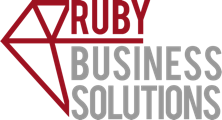Sustainable Business Practices: Balancing Profit and Environmental Responsibility
In an era where climate change and environmental sustainability are at the forefront of global concerns, businesses, regardless of their size, play a crucial role in contributing towards a more sustainable future. Small and medium-sized enterprises (SMEs) in Canada have a unique opportunity to lead by example, showing that economic activities can be both profitable …
Sustainable Business Practices: Balancing Profit and Environmental Responsibility Read More »




















